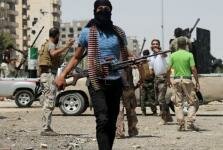The Eurasian Economic Union (EEU) nations of Kazakhstan, Belarus and Russia “should create a joint plan to deal with the current (economic) crisis”, Kazakh President Nursultan Nazarbayev said after meeting Friday with his Russian and Belarusian counterparts in this Kazakh capital.
“Our economy in 2015 requires a detailed discussion of our cooperation,” Nazarbayev said, adding that “it will be a year of great challenges and risks” for the EEU.
The Kazakh leader was speaking shortly after meeting with his Russian and Belarusian counterparts, Vladimir Putin and Alexander Lukashenko, Efe news agency reported.
“We need to talk about the current situation in the world from the perspective of the crisis we are experiencing,” said Nazarbayev, who attributed the global economic difficulties, and in particular regional ones, to the drop in oil prices that caused a decrease in trade among the EEU members in 2014.
“We knew we would face these risks and our task now is to reach agreements and discuss all of these issues in business terms,” Nazarbayev said.
Meanwhile, Putin raised the possibility of establishing a monetary union between Russia, Belarus and Kazakhstan.
“We believe it is time to discuss the possibility of forming a monetary union in the long term,” Putin said.
The Russian president said that “working shoulder to shoulder offers more possibilities to protect the global financial market”.
On his part, Lukashenko said that before making any decisions, the three governments “should address the specific issues”.
According to estimates by the promoters of the Eurasian integration project, the synergistic effect of the union is expected to boost the growth of between 17 and 20 percent of gross domestic product (GDP) of each EEU member over the next 10 years.
The Eurasian integration includes the implementation of the free movement of goods, capital, services and labour, as well as coordination of economic policies.
It currently comprises the founding members Russia, Kazakhstan and Belarus. Armenia’s accession treaty came into force in January, while Kyrgyzstan’s accession is still in the ratification stage.
The agriculture, construction and trade sectors were liberalized on January 1, while others sectors are to be incorporated gradually.
The common electricity market within the EEU has been slated to begin in 2019, and the hydrocarbon market by 2025.
The three leaders also discussed the situation in Ukraine and agreed to “find a realistic solution” to the problem.
The Kazakh president was against military intervention and insisted that Ukraine must “maintain its territorial integrity” while Lukashenko stressed that the current situation “does not benefit anyone”.
The presidents of Kazakhstan, Russia and Belarus will meet again on May 8 in Moscow.





